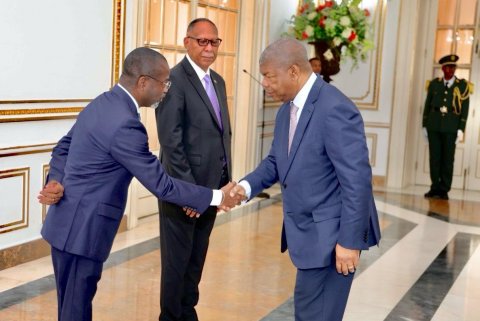In judgment 658/20, of 15 December, made public in late December and which Lusa had access to, the plenary of TC judges upholds the action brought by the Angolan Bar Association (OAA), stating that such competence is guarantee judge and not the MP.
The Law on Cellular Identification or Location and Electronic Surveillance was approved in April 2020 by the parliament and subsequently the OAA filed a lawsuit with the TC on successive and abstract inspection of the constitutionality of the rules of that diploma.
The Angolan Bar Association, in its justification, considers that any act of this nature (wiretapping), without justified justification and authorization by a judge, is contrary to the State's obligations, assumed with the ratification, in 1991, of the International Pact of Rights Civil and Political.
The right to privacy and intimacy, the inviolability of the home and the inviolability of correspondence and communications, provided for in the Constitution, are "fundamental legal assets that can only be private, limited or restricted by judicial authorization", observes the OAA.
As an argument, according to the ruling, the parliament states that "our judicial organization today does not have the intervention of judicial magistrates in the preparatory investigation phase".
For the parliament, the TC's ruling says, "organized crime in Angola is increasingly complex, as criminals use electronic means, capable of concealing criminal activity or making it difficult for police to clarify crimes and accountability of its agents ".
"I understand the National Assembly that the measures or measures could be applied immediately, I did not want to leave citizens unprotected from their fundamental rights, freedoms and guarantees and chose to attribute such competence to the MP", reads the text referring to the parliament's response .
However, after considering the arguments of the appellant and the parliament, the plenary of judges of the Constitutional considers that the ordinary legislator in allowing the MP to authorize and validate wiretapping, as determined by that law, "such a situation puts the defendant in a weakened and disadvantageous position compared to MP ".
The Law on Cellular Identification or Location and Electronic Surveillance, when attributing effective and real jurisdictional powers to the Public Ministry, "goes against the precepts established by the constitutional legislator", says the TC.
Under the terms of the Constitution, the judges of the TC argue, "it is the responsibility of the Public Prosecutor to have criminal action, and in certain stages of the process it ends up taking the part, even if in a formal sense".
"The position occupied in the process somewhat impairs impartiality in relation to the defendant, since, with an investigation underway, the judgment that most influences the MP in relation to the defendant is suspicion, and this can impair in a certain way objectivity that is required ", points out the plenary of the TC.
The Constitutional Court, "in admitting the rationale of the National Assembly, would be setting a precedent that consists, properly speaking, in the sacrifice of constitutional norms in favor of ordinary laws".
Taking into account the "precepts that guide the democratic and lawful State", the TC understands that the norms of the referred law, which empower the MP to authorize, order and validate wiretaps and environmental recording in private, conditioned or restricted access places , "are unconstitutional".







